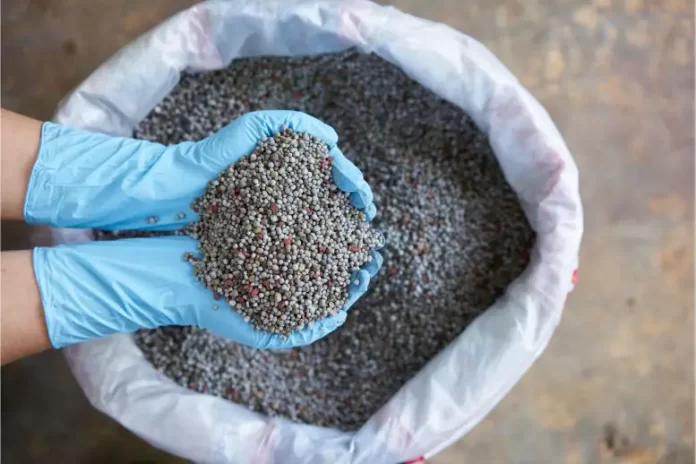Fertilizer is an essential component in modern agriculture, providing vital nutrients to crops that help them grow healthy and abundant. Without fertilizer, soil can become depleted of key nutrients such as nitrogen, phosphorus, and potassium, leading to reduced crop yields and lower-quality produce.
A study suggests that rising fertilizer prices could threaten an additional 100 million people with undernourishment.
The conflict in Ukraine has resulted in the blockading of significant amounts of wheat, barley, and corn, however, researchers have found that the reduced food exports from the region have a lesser impact on food price increases than previously feared.
A study led by researchers from the University of Edinburgh indicates that the primary driver of food insecurity in the coming decades will be the significant increase in energy and fertilizer prices.
Until now, how energy and fertilizer price rises and export restrictions affects future global food prices was poorly understood. There has also been little analysis to quantify the scale of harm that hikes in the price of food could have on human nutritional health and the environment.
The team used a global land-use computer model to simulate the effects of export restrictions and spikes in production costs on food prices, health, and land use until 2040.
Their simulations suggest the combined effect of export restrictions, increased energy costs, and mid-2022 fertilizer prices – which are three times higher than at the start of the previous year – could cause food costs to rise by 81 percent in 2023 compared to 2021 levels.
Export restrictions account for only a small fraction of the simulated price rises, the team says. Halting exports from Russia and Ukraine would increase food costs in 2023 by 2.6 percent, while spikes in energy and fertilizer prices would cause a 74 percent rise.
Food price rises would lead to many people’s diets becoming poorer, the team says.
The findings suggest there could be up to one million additional deaths and more than 100 million people undernourished if high fertilizer prices continue. The greatest increases in deaths would be in Sub-Saharan Africa, North Africa, and the Middle East.
The modeling estimates that sharp increases in the cost of fertilizers – which are key to producing high yields – would greatly reduce their use by farmers. Without fertilizers more agricultural land is needed to produce the world’s food, the team says.
The simulations indicate that by 2030 this could increase agricultural land by an area the size of much of Western Europe – Belgium, France, Germany, Ireland, Italy, Netherlands, Portugal, Spain, and the UK. This would have severe impacts on deforestation, carbon emissions, and biodiversity loss, the team says.
The study is published in the journal Nature Food. It also involved researchers from Karlsruhe Institute of Technology in Germany, Rutgers University in the USA, and the University of Aberdeen.
Dr. Peter Alexander, of the University of Edinburgh’s School of GeoSciences, who led the study, said: “This could be the end of an era of cheap food. While almost everyone will feel the effects of that on their weekly shop, it’s the poorest people in society, who may already struggle to afford enough healthy food, who will be hit hardest.
“The Black Sea Grain Initiative is a welcome development and has largely allowed Ukraine food exports to be re-established, but the immediacy of these issues appears to have diverted attention away from the impact of fertilizer prices. While fertilizer prices are coming down from the peaks of earlier this year, they remain high and this may still feed through to continued high food price inflation in 2023. More needs to be done to break the link between higher food prices and harm to human health and the environment.”
Reference: “High energy and fertilizer prices are more damaging than food export curtailment from Ukraine and Russia for food prices, health and the environment” by Peter Alexander, Almut Arneth, Roslyn Henry, Juliette Maire, Sam Rabin, and Mark D. A. Rounsevell, 23 December 2022, Nature Food.








